Most people may feel intimidate because of how confusing japanese word's order is, or how confusing japanese characters are, with question like "How I should read ふたなり, and why I need to write it before つき? Why the order isn't reversed?", but once you grasp it, is easier than you may think! The order may even be the easiest, because is always the subject that is attached to your mind when you want to form an oration!
but, just like everything in this bad, we'll do it step by step, slowly at your own rythm, because there's no better teacher than time and patience, even though the second may convince your ego to hit you from time to time.
One thing that I must clarify, I'll only add legally free stuff here, so don't worry about spending a pinny, no matter how your economic is, you'll be able to educate yourself with these!
STEP 1: THE BASIC ALPHABETS
Yes, this may be confusing at first, but overall, you should first read the two basic alphabets. Don't worry! It doesn't replicate the entire Latin alphabet like you may think, actually, it's different. Is only composed of vowels, syllables, "Exceptions" and for some weird reason, the N letter! (Why?)
The first one is mostly used only for japanese words or meaning, and it means that these are used mostly in Furigana! (More about it later), once you learn it, you may be able to read a ton of stuff in games as long as these include Furigana (mostly included in modern games), something that I did is writting a lot of things in Hiragana, using it to form words in my language, like an encrypted writing, is a good exercise and will teach your muscles how things are written, so even if your memory forgets it, your body will still have "metadata" to reconstruct it.
Here's the manual that I used to learn them!
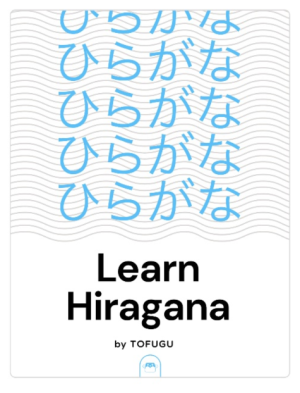
Now you may wonder, but if I already know Hiragana, why should I learn Katakana? It may sound logic, once you learn the latin alphabet, you only need that to talk, both in sounds and letters. But japanese is different, how things are pronounced may be the same sometime, but when they write it, even the same sentence may have different characters. Isn't because they are writing it bad, but because they are saying different things. How to identify them irl? By the year and the context of the conversation, ofc. Most persons make it looks harder than it appears, but is actually a bit easier in casual talks.
Besides, if your native language is english, you may need it to... Talk english in japanese? Yeah, this may sound weird, but in japanese, there's a concept, "loan word", which are foreigners words. This may looks weird, but it was initially a step to understand and learn how to read chinese characters, which well, with time, ended up used in more and more things, like english words or german words. If you noticed that in anime, people that talk english talk it in a... Weird way, is because, probably, the script for the voice actor was written in katakana, or the person thinks in the english word in a "katakana way". Once you learn it, you'll surely be able to play games with Furigana in them and even actually understand them fully if you learn enough words!
Here's the manual that I used to learn it, and I'm re-studying because I'm a big silly and forgot some letters!
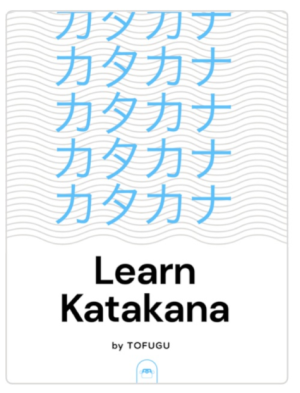
Credits to Tofugu, without their manuals, I probably could't start studying this wonderful language and I would still need to wait for H games to be patched to english!
STEP 2: BE PATIENT
Now you know these two, and you want to learn the latest one, the third one, the intimidating Kanji. But wait! Do not! You still need to stick these characters in your head! But you may wonder, how? Well, here's the fun part, games! But for now, we'll only stick around RPG for childs! ... "What?" you may be thinking, but there's a reason.
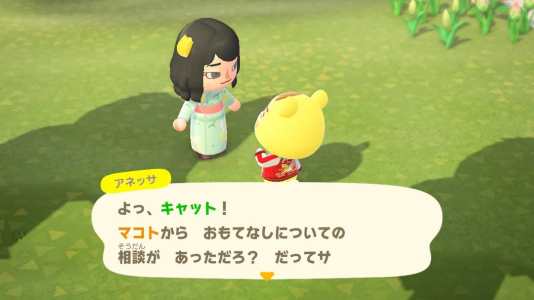
Kids may not be too familiarized with Kanjis, so even if some games include them, they add Furigana too, which shows how Kanjis are readed and pronounced. Games like Digimon Re:Digitize, most Pokemon games for 3DS, and even, but not likely, Dragon Balls RPGs! Why not likely? The RPG card game for the 16 bit era do not have Furigana, but the Fusion for 3DS does have. Actually, most old RPG do not have furigana, some of them have only a few common Kanji to not confuse kids.
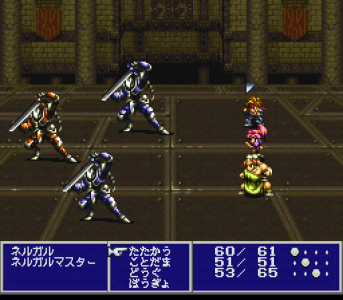
Stick to it, read a ton of stuff in these games, beat them or just play them to read, it doesn't matter. Just be sure to have a great time learning new words and taking note of some of them! Remember, time is an enemy if you use it bad, but a tool if you use it well! And the only way to use it bad is, or use it for not-learning something, or use it for not getting any type of fun or challenge in the way. You may even have a nostalgic feeling to it, everytime I play a RPG in a new language that I'm learning, it remembers me of when I was actually learning to read, everything is so new and wonderful... There's so many things to learn, and there's so many misunderstanding that you'll suffer along the way that'll frustrate you, only to correct yourself and understand how it feels to change your views of the same problems or stories.
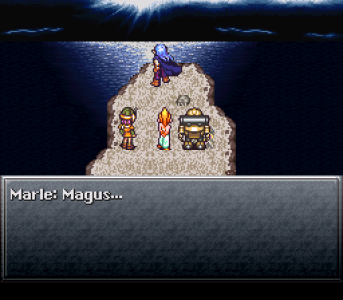
Not everyone will learn at the same rythm, not everyone will learn the same things, and most important, not everyone will attach the same meaning or feelings to these words. This is your experience, this is your life, live and experience it by the way you want, not by the way that others or even yourself demands you to live it.
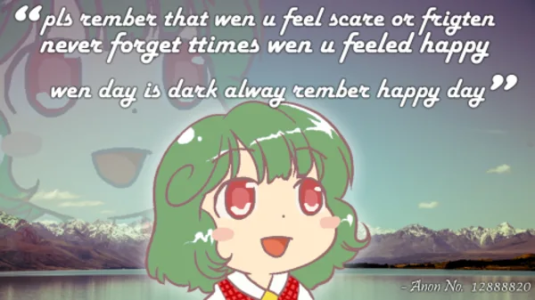
STEP 3: FINALLY, ANKI.
She's not important, I just love her a lot enough to include she here. She's so damn cute!


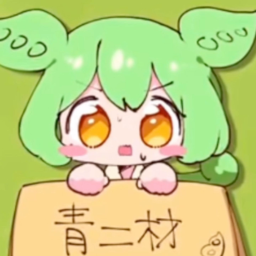
Ignoring what just I said, what's Anki? This is the semi-final boss, everthing you had done before, is to face him. Anki is a "flashcard program that helps you spend more time on challenging material, and less on what you already know." (Literally copy-pasted from their page), technically makes you repeat some words that you may not know, and some of which you will need to remember more. Adaptation by exposure you may think, but is deeper than that.
"So, this is the final step?" No, actually, Anki isn't useful if you use Anki incorrect. How do you use it wrong? Just use Anki. Only use Anki, and nothing more. Believe Anki will do magically everthing and you won't have to do nothing.
You still need to do the things what the step 2 recommends you, Anki is a tool, isn't a teacher or a magic pill. Even pills doesn't work by themselves, for example, antidepressives need to be accompanied with a rutine and therapy to make the best use of them, the same with Anki. If you want to learn it well, never forget to re-inforce the things you learning there to make it worth.
So, what's the best way to use it?
If I start writing about it, this will be a post too big, so instead, I'll link one of the best vids that I recommend on how to use it. If I should add something, at this point, you should not aim anything else if you didn't learn the basic deck. It may be the only one if you don't want to read too technical stuff
STEP 4: THINK
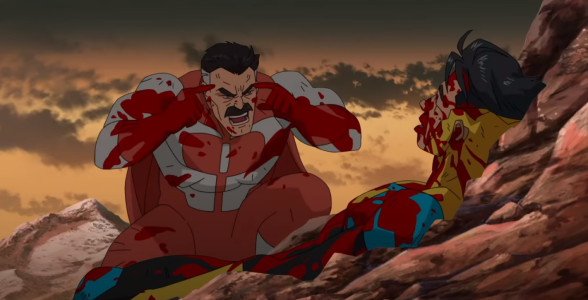
Not everyone that's learning a language may know this, even some people that can read or understand other language but don't talk it. You need to finally inmerse in it, you need to THINK in this language. Language limit and molds our thinking, even our consciousness and our feelings, the way we feel or interpretate hate, or even love. People love in different ways, people may hate in different ways too, people may suffer in different ways. There are things you can't think in english, or in japanese, or in spanish. An example of it, is how easy in portuguese is to think about Saudade. What's Saudade? Is a word for the nostalgia that would have been, for the nostalgia that never happened but still gives nostalgia.
Once I learned this word, I stopped thinking in "Nostalgia por algo que nunca vivi" (Nostalgia for something that I never lived), and started to think in "Esta Saudade me hace entender como se sentía mi madre." (This Saudade makes me understand how my mother felt.). This helped me many times, when I can't think in a solution, I think in another language to see what options are available, I tend to switch from spanish to english to japanese, searching any word that first comes to my mind and work around it.
Once you start thinking in japanese, you may even forget what it means in english, but that's fine. Is fine to grasp the concept, and not the translation to your language. To understand these words as something that you understand, and not something that you know how to translate in your native language. Once your mind can finally understand and think in japanese often or even switch to it, you've done it, you know japanese, even if it's a little.
If you interpretate this as a final boss, you'll understand that the biggest enemy was your own lack of self-confidence and your fear of something new. Do not fight it, just accept it, accept that part of yourself that can't pass from step 3, and learn why. If you frustrate with yourself because you're "too slow", or you feel "useless", never forget, the person that was always with you, was you. The person that take care of you, that loved you, it be a mother, a brother, a sister, or anyone else that's a family even if not blood related, always worried about the most important person for you that you should understand now, yourself. Abusing of your lack of confidence or insulting you for learning won't do nothing, only understanding and patience will teach you.
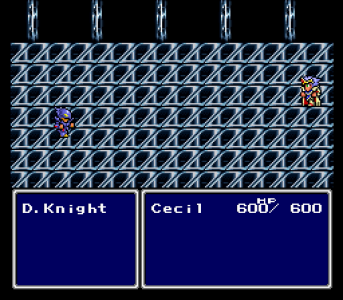
You may be comprehensive with others, but first, be comprehensive with yourself.
NEW GAME PLUS: BACK TO THE BASICS
Finally, you stopped seeing everthing as something hard you need to overcome, but as something you have to live with, experience, and eventually learn from. You can start talking to others always being considerated with their culture, there's a huge difference between how things are viewed in your culture, and how are viewed in theirs. If you feel like it, study again the most basic things, now that you finally can see it without relating it to your native-language, re-learn is necessary once you finally get rid of the biggest problem in learning a language, your own prejudices and experience. Keep studing even more complex Anki decks, play games that not are aimed for kids, or even aimed for kids if you still don't feel confident enough! Everthing you have learned wasn't to flex or to put a standard on what you should be doing once you get here, it should be something that conforms your knowledge and the reach of your consciusness. A language is more than a tool, even if everthing here was. Is a culture, stories, is the despair of people, is the happy moments of a life's person, no matter how much of an "expert" you may be, just do things at your own rythm, but never underestimate yourself.
If you get to this part, I'm truly grateful, thanks for taking the time of reading all this almost biblically long text, and I hope I helped you in any way possible. I wish all of the people that considered it the best of lucks, and I love yall. Remember, learn is a way of loving yourself too!
Remember, learn is a way of loving yourself too!
but, just like everything in this bad, we'll do it step by step, slowly at your own rythm, because there's no better teacher than time and patience, even though the second may convince your ego to hit you from time to time.
One thing that I must clarify, I'll only add legally free stuff here, so don't worry about spending a pinny, no matter how your economic is, you'll be able to educate yourself with these!
STEP 1: THE BASIC ALPHABETS
Yes, this may be confusing at first, but overall, you should first read the two basic alphabets. Don't worry! It doesn't replicate the entire Latin alphabet like you may think, actually, it's different. Is only composed of vowels, syllables, "Exceptions" and for some weird reason, the N letter! (Why?)
The first one is mostly used only for japanese words or meaning, and it means that these are used mostly in Furigana! (More about it later), once you learn it, you may be able to read a ton of stuff in games as long as these include Furigana (mostly included in modern games), something that I did is writting a lot of things in Hiragana, using it to form words in my language, like an encrypted writing, is a good exercise and will teach your muscles how things are written, so even if your memory forgets it, your body will still have "metadata" to reconstruct it.
Here's the manual that I used to learn them!

Now you may wonder, but if I already know Hiragana, why should I learn Katakana? It may sound logic, once you learn the latin alphabet, you only need that to talk, both in sounds and letters. But japanese is different, how things are pronounced may be the same sometime, but when they write it, even the same sentence may have different characters. Isn't because they are writing it bad, but because they are saying different things. How to identify them irl? By the year and the context of the conversation, ofc. Most persons make it looks harder than it appears, but is actually a bit easier in casual talks.
Besides, if your native language is english, you may need it to... Talk english in japanese? Yeah, this may sound weird, but in japanese, there's a concept, "loan word", which are foreigners words. This may looks weird, but it was initially a step to understand and learn how to read chinese characters, which well, with time, ended up used in more and more things, like english words or german words. If you noticed that in anime, people that talk english talk it in a... Weird way, is because, probably, the script for the voice actor was written in katakana, or the person thinks in the english word in a "katakana way". Once you learn it, you'll surely be able to play games with Furigana in them and even actually understand them fully if you learn enough words!
Here's the manual that I used to learn it, and I'm re-studying because I'm a big silly and forgot some letters!

Credits to Tofugu, without their manuals, I probably could't start studying this wonderful language and I would still need to wait for H games to be patched to english!
STEP 2: BE PATIENT
Now you know these two, and you want to learn the latest one, the third one, the intimidating Kanji. But wait! Do not! You still need to stick these characters in your head! But you may wonder, how? Well, here's the fun part, games! But for now, we'll only stick around RPG for childs! ... "What?" you may be thinking, but there's a reason.

Kids may not be too familiarized with Kanjis, so even if some games include them, they add Furigana too, which shows how Kanjis are readed and pronounced. Games like Digimon Re:Digitize, most Pokemon games for 3DS, and even, but not likely, Dragon Balls RPGs! Why not likely? The RPG card game for the 16 bit era do not have Furigana, but the Fusion for 3DS does have. Actually, most old RPG do not have furigana, some of them have only a few common Kanji to not confuse kids.

Stick to it, read a ton of stuff in these games, beat them or just play them to read, it doesn't matter. Just be sure to have a great time learning new words and taking note of some of them! Remember, time is an enemy if you use it bad, but a tool if you use it well! And the only way to use it bad is, or use it for not-learning something, or use it for not getting any type of fun or challenge in the way. You may even have a nostalgic feeling to it, everytime I play a RPG in a new language that I'm learning, it remembers me of when I was actually learning to read, everything is so new and wonderful... There's so many things to learn, and there's so many misunderstanding that you'll suffer along the way that'll frustrate you, only to correct yourself and understand how it feels to change your views of the same problems or stories.

Not everyone will learn at the same rythm, not everyone will learn the same things, and most important, not everyone will attach the same meaning or feelings to these words. This is your experience, this is your life, live and experience it by the way you want, not by the way that others or even yourself demands you to live it.

STEP 3: FINALLY, ANKI.
She's not important, I just love her a lot enough to include she here. She's so damn cute!

Ignoring what just I said, what's Anki? This is the semi-final boss, everthing you had done before, is to face him. Anki is a "flashcard program that helps you spend more time on challenging material, and less on what you already know." (Literally copy-pasted from their page), technically makes you repeat some words that you may not know, and some of which you will need to remember more. Adaptation by exposure you may think, but is deeper than that.
"So, this is the final step?" No, actually, Anki isn't useful if you use Anki incorrect. How do you use it wrong? Just use Anki. Only use Anki, and nothing more. Believe Anki will do magically everthing and you won't have to do nothing.
You still need to do the things what the step 2 recommends you, Anki is a tool, isn't a teacher or a magic pill. Even pills doesn't work by themselves, for example, antidepressives need to be accompanied with a rutine and therapy to make the best use of them, the same with Anki. If you want to learn it well, never forget to re-inforce the things you learning there to make it worth.
So, what's the best way to use it?
If I start writing about it, this will be a post too big, so instead, I'll link one of the best vids that I recommend on how to use it. If I should add something, at this point, you should not aim anything else if you didn't learn the basic deck. It may be the only one if you don't want to read too technical stuff
STEP 4: THINK

Not everyone that's learning a language may know this, even some people that can read or understand other language but don't talk it. You need to finally inmerse in it, you need to THINK in this language. Language limit and molds our thinking, even our consciousness and our feelings, the way we feel or interpretate hate, or even love. People love in different ways, people may hate in different ways too, people may suffer in different ways. There are things you can't think in english, or in japanese, or in spanish. An example of it, is how easy in portuguese is to think about Saudade. What's Saudade? Is a word for the nostalgia that would have been, for the nostalgia that never happened but still gives nostalgia.
Once I learned this word, I stopped thinking in "Nostalgia por algo que nunca vivi" (Nostalgia for something that I never lived), and started to think in "Esta Saudade me hace entender como se sentía mi madre." (This Saudade makes me understand how my mother felt.). This helped me many times, when I can't think in a solution, I think in another language to see what options are available, I tend to switch from spanish to english to japanese, searching any word that first comes to my mind and work around it.
Once you start thinking in japanese, you may even forget what it means in english, but that's fine. Is fine to grasp the concept, and not the translation to your language. To understand these words as something that you understand, and not something that you know how to translate in your native language. Once your mind can finally understand and think in japanese often or even switch to it, you've done it, you know japanese, even if it's a little.
If you interpretate this as a final boss, you'll understand that the biggest enemy was your own lack of self-confidence and your fear of something new. Do not fight it, just accept it, accept that part of yourself that can't pass from step 3, and learn why. If you frustrate with yourself because you're "too slow", or you feel "useless", never forget, the person that was always with you, was you. The person that take care of you, that loved you, it be a mother, a brother, a sister, or anyone else that's a family even if not blood related, always worried about the most important person for you that you should understand now, yourself. Abusing of your lack of confidence or insulting you for learning won't do nothing, only understanding and patience will teach you.

You may be comprehensive with others, but first, be comprehensive with yourself.
NEW GAME PLUS: BACK TO THE BASICS
Finally, you stopped seeing everthing as something hard you need to overcome, but as something you have to live with, experience, and eventually learn from. You can start talking to others always being considerated with their culture, there's a huge difference between how things are viewed in your culture, and how are viewed in theirs. If you feel like it, study again the most basic things, now that you finally can see it without relating it to your native-language, re-learn is necessary once you finally get rid of the biggest problem in learning a language, your own prejudices and experience. Keep studing even more complex Anki decks, play games that not are aimed for kids, or even aimed for kids if you still don't feel confident enough! Everthing you have learned wasn't to flex or to put a standard on what you should be doing once you get here, it should be something that conforms your knowledge and the reach of your consciusness. A language is more than a tool, even if everthing here was. Is a culture, stories, is the despair of people, is the happy moments of a life's person, no matter how much of an "expert" you may be, just do things at your own rythm, but never underestimate yourself.
If you get to this part, I'm truly grateful, thanks for taking the time of reading all this almost biblically long text, and I hope I helped you in any way possible. I wish all of the people that considered it the best of lucks, and I love yall.
 Remember, learn is a way of loving yourself too!
Remember, learn is a way of loving yourself too!
 (?
(?